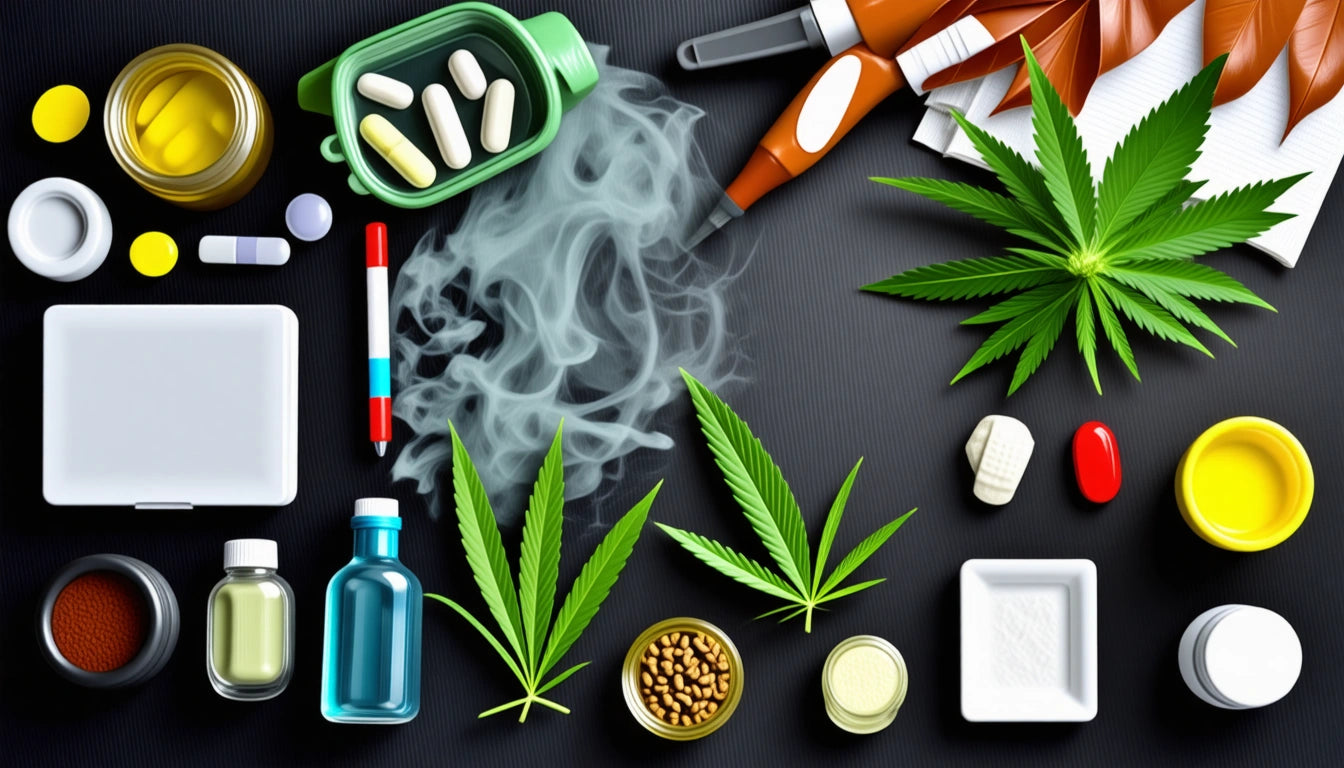Table of Contents
Effective Strategies for Passing a Saliva Drug Test for THC
Saliva drug tests have become increasingly common in workplace screening, roadside testing, and probation monitoring. For cannabis users, understanding how to pass a saliva drug test for THC can be crucial information. This guide explores evidence-based strategies that may help increase your chances of passing a mouth swab test.
Understanding Saliva Tests for THC
Saliva tests, also known as mouth swab tests, detect the presence of THC (tetrahydrocannabinol) in oral fluids. Unlike urine or blood tests that detect metabolites, saliva tests look for active THC compounds that remain in the mouth after cannabis use. These tests are popular because they're:
- Non-invasive and easy to administer
- Difficult to adulterate or substitute samples
- Capable of detecting recent use (typically within hours to days)
- Less expensive than other testing methods
Most standard saliva tests have a cutoff level of 4-10 nanograms per milliliter, though more sensitive tests exist. Understanding these basics is the first step in knowing how drug testing for THC works.
THC Detection Window in Saliva
One advantage of saliva testing from the user's perspective is the relatively short detection window compared to urine or hair tests. According to research on THC detection in saliva, THC typically remains detectable for:
- Occasional users: 24-48 hours after smoking
- Regular users: 72 hours after smoking
- Heavy, chronic users: Up to 1 week in some cases
This shorter window provides more opportunity to prepare if you know a test is coming. The most reliable method for passing is abstinence for at least 72 hours before testing, though this isn't always possible with surprise tests.
Preparation Strategies Before a Test
Temporary Abstinence
If you know about a test in advance, stopping cannabis consumption is the most effective approach. Even a 24-hour break significantly reduces detection risk, while 48-72 hours provides much better odds for occasional users.
Hydration and Diet
While hydration doesn't eliminate THC from saliva as effectively as it might with urine, staying well-hydrated helps maintain normal saliva production and may assist in natural clearing processes. Some users report that high-fat meals before abstaining may help sequester remaining THC in fat cells rather than allowing it to circulate in the bloodstream and appear in saliva.
Oral Hygiene Regimen
Implementing a thorough oral hygiene routine in the days before testing can help reduce THC concentration in the mouth:
- Brush teeth 3-4 times daily, including gums, tongue, and inside of cheeks
- Use alcohol-based mouthwash multiple times daily
- Floss thoroughly to remove particles between teeth
- Consider using a tongue scraper for deeper cleaning
For those who enjoy cannabis but need to be prepared for testing, having quality equipment like efficient herb grinders for your personal use can help you better control your consumption patterns when preparing for potential tests.
Day of Test Techniques
The hours immediately before a saliva test are crucial. Consider these strategies on test day:
Last-Minute Oral Cleansing
About 30-60 minutes before the test:
- Brush thoroughly, focusing on all mouth surfaces
- Use hydrogen peroxide mouthwash (diluted 1:1 with water)
- Rinse with water afterward
- Chew gum briefly to stimulate fresh saliva production
Hydration Strategy
Drink plenty of water in the hours leading up to the test. This helps flush your system and ensures you can produce enough saliva for the test. Some users report drinking acidic drinks like cranberry juice or lemon water, though scientific evidence for their effectiveness is limited.
If you're looking for more comprehensive strategies, our guide on passing mouth swab tests provides additional techniques.
Products and Methods That May Help
Several commercial products claim to help pass saliva tests, though results vary widely:
Detox Mouthwashes
Specialized detox mouthwashes designed specifically for passing oral drug tests are available. These typically work by temporarily neutralizing saliva for a short window (30-60 minutes). Follow instructions precisely, as timing is crucial.
Detox Gums and Lozenges
Similar to mouthwashes, these products aim to neutralize oral fluids temporarily. They may be more discreet to use immediately before a test.
Oral Cleansing Wipes
Some companies offer specialized wipes designed to clean the inside of the mouth before testing. These can be useful in situations where you can't brush or use mouthwash.
For more detailed information on these and other methods, see our comprehensive guide on passing marijuana drug tests.
Common Myths to Avoid
Not all popular methods are effective, and some may even increase your risk of failing:
- Vinegar rinses: May alter pH but can irritate mouth tissues and smell suspicious
- Bleach dilution: Dangerous and ineffective, plus easily detected
- Excessive brushing right before: Can cause bleeding and potentially release stored THC
- "Fool-proof" detox drinks: Most have limited evidence supporting their effectiveness
Always approach with caution claims that seem too good to be true, as they usually are. For science-based approaches, refer to our article on passing oral drug tests.
Future Considerations for Cannabis Users Facing Testing
As cannabis legalization expands, testing policies continue to evolve. Some jurisdictions are reconsidering workplace testing policies, particularly for non-safety-sensitive positions. However, until broader changes occur, cannabis users should:
- Be aware of employer policies and testing frequencies
- Understand the specific type of test used by your employer
- Consider timing consumption around known testing periods
- Stay informed about legal protections in your state for medical users
The most reliable approach remains abstinence before testing, but understanding these strategies provides options when abstinence isn't possible or when tests come unexpectedly. For those using cannabis medicinally, discuss testing concerns with your healthcare provider, as some situations may qualify for accommodations or exemptions.











Leave a comment
All comments are moderated before being published.
This site is protected by hCaptcha and the hCaptcha Privacy Policy and Terms of Service apply.